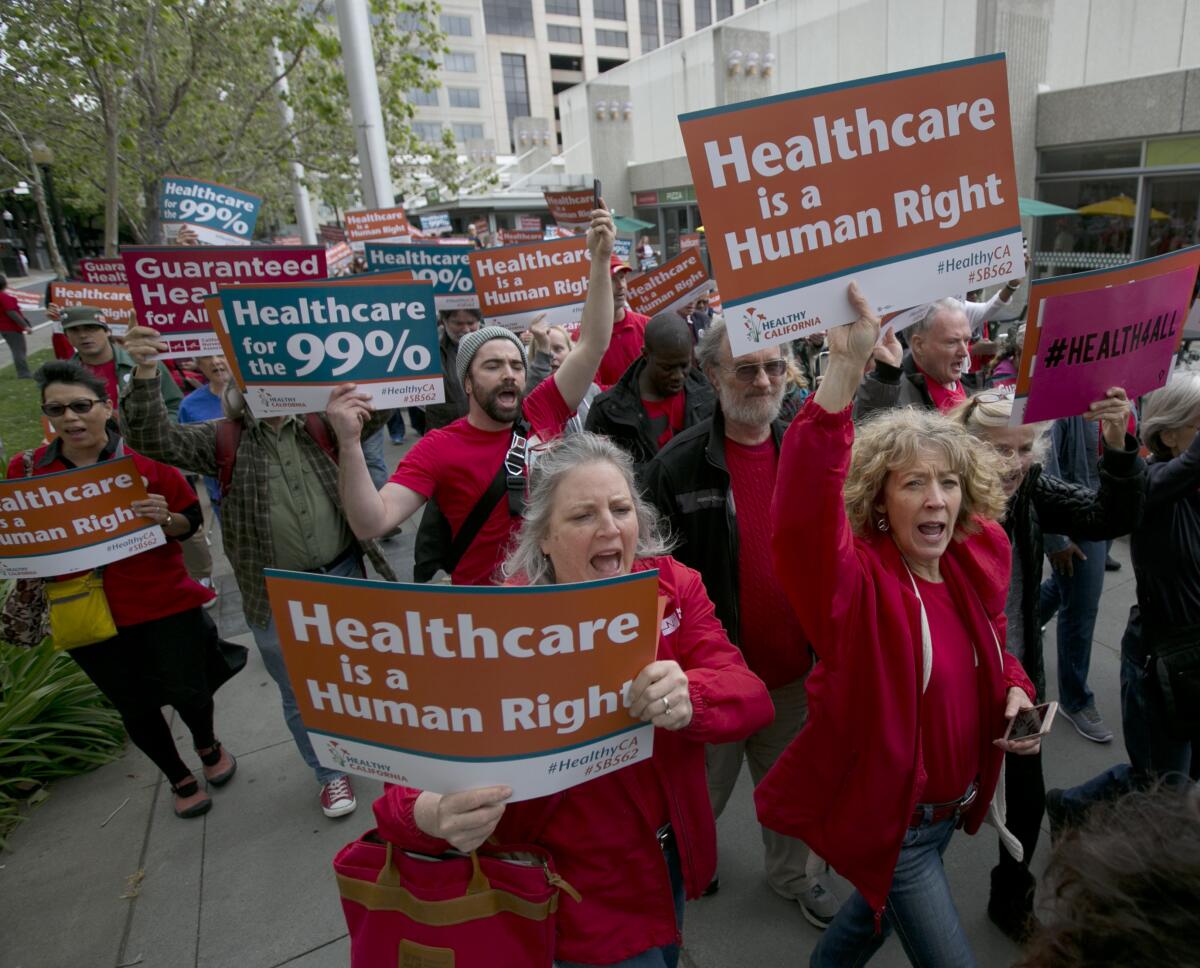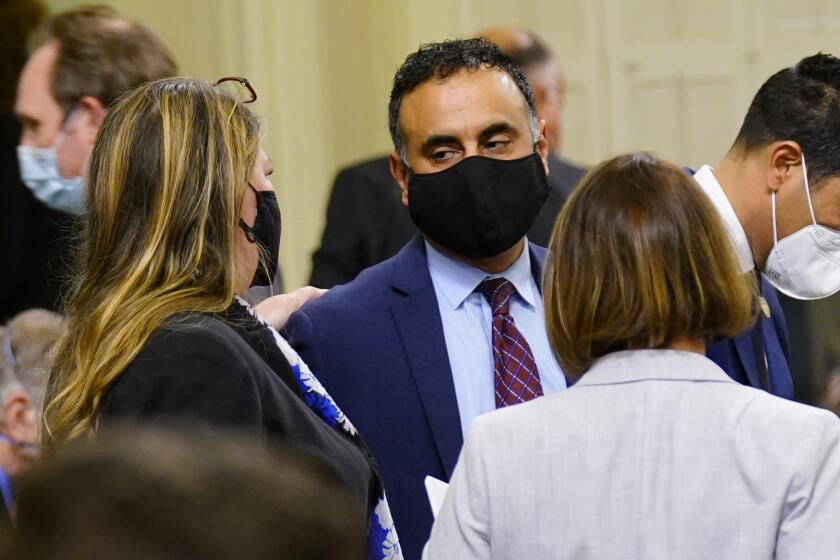New California law takes a step toward single-payer healthcare

- Share via
Gov. Gavin Newsom signed a bill Saturday that sets the stage for California to work toward universal healthcare, such as a single-payer system that progressive activists have sought for years.
The law could help California obtain a waiver that would allocate federal Medicaid and Medicare funds to be used for what could eventually become a single-payer system that would cover every California resident and be financed entirely by state and federal funds.
California’s health secretary will have to offer recommendations on crafting the federal waiver by June 1, 2024, under Senate Bill 770.
“With this signature, California takes a historic step toward universal healthcare,” said a statement from the bill’s author, Sen. Scott Wiener (D-San Francisco). “The state will now begin answering the complex question of how we can access federal financing to fund a universal healthcare system like single-payer.”
For decades, Californians have tried and failed and tried again — just about 10 times — to overhaul the state’s healthcare system. But attempts at a sweeping overhaul have been stymied by enormous costs, legal and bureaucratic hurdles and disagreement among groups within the healthcare industry.
Despite another setback, the fight continues for California Democrats trying to transition single-payer healthcare from ideology into policy.
Wiener’s legislation represents an incremental approach that will kick-start the process of solving one piece of a complicated puzzle, rather than attempting a massive revamp of the healthcare system.
Supporters of a single-payer model find fault with the existing healthcare system that leaves many patients paying astronomical co-pays and some haunted by fear of the debt they will accrue from medical procedures.
While the bill had support from many healthcare reform advocates, it faced opposition from both ends of the political spectrum. Critics on the left said it doesn’t go far enough in moving California toward single-payer healthcare, while critics on the right said it represents an ultimate goal of abolishing private health insurance and increasing taxes.
The California Nurses Assn., which has advocated for single-payer healthcare for decades, opposed the measure, contending that the work the bill asks the California Health and Human Services Agency to do has already been done.
Carmen Comsti, a lead regulatory policy specialist for the nurses union, said the bill would be an “unnecessary” waste of state resources.
Michael Lighty, president of Healthy California Now, the sponsor of Wiener’s bill, countered that the legislation promises a universal system, which could include a single-payer system.
“What we made clear is there is no preordained outcome,” Lighty said.
Cindy Young, a board member of the California Alliance for Retired Americans who supports Wiener’s bill, stressed that time is of the essence, particularly for California’s aging population.
“There are things seniors can’t get or it’s eating up our pension money to be able to pay for those things,” said Young, 68. “Long-term care is an absolute necessity. What’s going to happen to us if we can’t take care of ourselves?”
The nurses union is urging lawmakers to consider a more ambitious single-payer bill next year.
More to Read
Sign up for Essential California
The most important California stories and recommendations in your inbox every morning.
You may occasionally receive promotional content from the Los Angeles Times.















